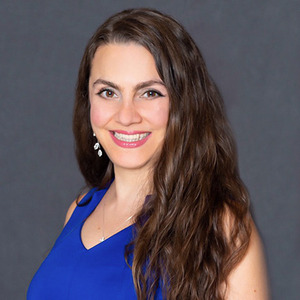Power List

Lisa Nijm
Power List Profile
Assistant Clinical Professor of Ophthalmology, University of Illinois Eye and Ear Infirmary; Creator & Program Director, Real World Ophthalmology, USA
Why did you decide to pursue ophthalmology/your subspecialty?
My love for ophthalmology began the day I saw Dr. Peter Brazis, my childhood ophthalmologist, perform cataract surgery and corneal transplants on patients in the OR. As amazed as I was at skill needed to perform such delicate surgery, the satisfaction in hearing patients the very next day exclaim how clear their vision was and how they didn't know they had "dust bunnies" was what really compelled me to find a mentor in my medical school despite the fact that we did not have an ophthalmology department. I was so fortunate to find Dr. Randal Peterson who not only wholeheartedly encouraged me to pursue ophthalmology but also generously funded my first research project himself, taught me how to do a stab incision as a third year medical student, and sent me to Washington University to work with the legendary Dr. Mort Smith. I will be forever grateful to the kindness and support of these three mentors as I started on my career journey – and I am doing my best to pay it forward.
What’s been the biggest breakthrough in ophthalmology/your specific field over the last 10 years?
In cornea, the evolution of the corneal transplant surgery from full thickness to increasingly thinner partial thickness grafts has been nothing short of amazing. Gone are the days where Fuchs patients had to wait an entire year to be fully recovered. Nanothin DSAEK has become one of my favorite surgeries to perform as the improvement in vision that my patients experience is truly remarkable.
What would you like to see change in ophthalmology/your subspecialty over the next 10 years – and why?
I would love to see technological advances be made more readily available to cure causes of preventable blindness in low and middle income countries. Orbis International and others have definitively demonstrated the ability to overcome and break the cycle of generational poverty simply by restoring vision. I can only imagine the amazing things that could be accomplished if governments, health care institutions and industry made it a priority to fund infrastructure, create training programs, and implement technology to provide primary eye health care and greater access to ophthalmic care for patients in these underserved populations.
What is your prediction for where ophthalmology/your subspecialty will be 10 years from now?
In ophthalmology, I see gene therapy being developed for inherited eye diseases and becoming more widely available, while offering the opportunity for more personalized treatments, using genomic and proteomic technologies. I expect that we will see advancements in artificial intelligence and machine learning that will aid the ophthalmologist in more precise diagnosis and treatment of eye diseases. I also predict that improvements in diagnostic imaging technology and telemedicine features will allow for remote examination, especially for patients in underserved areas. I think we will see continued advancements in IOLs and treatment options for myopia and presbyopia. In cornea, I think we will see further advancements in corneal transplantation techniques, including the use of artificial corneas and 3D printing. Virtual and augmented reality technology may be more readily used to improve surgical planning and training for surgeons. Ophthalmology is a technology driven field and I couldn't be more excited to see what comes next!
